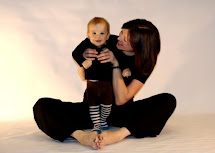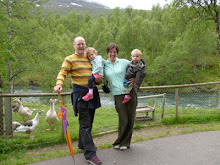| |
8 York Court, Wilder Street, Bristol BS2 8QH, UK
T: 0117 944 1000 F: 0117 924 4646 E: info@viva.org.uk
Is it possible to change my lifestyle to vegetarian or vegan? What about my kids? Will I get the nutrients and vitamins I need? What can I eat? What about my social life? I hope to raise awareness of a cruelty free and healthier lifestyle that will help you lose weight, improve your health and make you feel fantastic. I am a mother of two and have recently become vegan. It has changed my life. Just read, you'll be surprised!
| |
Posted by
Jill Forrest
at
10:43
1 comments
![]()
![]()
Labels: christmas turkey, vegan christmas

Well it's official. Heidi has a better social life than we do!
On friday she was at her kindergarten party and today we had to cry off a party at a friends due to Heidi having an ear infection. Friday was lovely, she was at the party in the morning - and yes I did take a vegan cake (chocolate this time) so she wouldn't feel left out. I think I'm the only mum that makes so many requests at nursery school but the staff are really supportive. It's a whole different subject but as we are not religious we also don't want Heidi growing up to believe religion like it was fact so we ask for her not to join in bible stories and church visits too. Maybe some of the teachers hide when they see me coming!
I am hoping to get out for one night out this year, friday is looking promising but as any mother of small children knows, anything might happen!
So now I am planning for packing and for the trip. I called the airline to request vegan meals for us but they don't have them on the routes we are taking so I guess I have to take food (dried food only) on the flights...um, bread, crackers...doesn't sound so appealing and of course I can take baby milk as long as I taste it first...which takes better, breast milk or formula..will have to guess at that, formula smells quite horrible and just the idea of drinking my own milk is not filling me with joy. We have bought Heidi some new activity books for Christmas which we hope will keep her occupied but Miller is cruising now and almost walking and keeping him on my lap will be truly difficult and I don't envy anyone sat near us at all!
All parents are rallying round in a splended fashion trying to get the things we might need when we arrive, baby formula, soya milk etc. I think my mum has been studying labels on buy food for weeks which is really positive.
As an aside, I smelt a normal yogurt yesterday for the first time in a few months and it smelt so strong and pungent to me after not eating dairy for some time. It reminded me of something I heard some time back about the Japanese saying that westerners smell of milk, well, there is truth to it but much worse is that meat eaters do smell of rotting meat, that I noticed soon after becoming a vegetarian, I'm sorry to say it but it is true, maybe not all, all of the time but it's quite distinct.
Well, this blog is full of tangents so I'd better leave it there seeing as I have no coherent point to make!
Enjoy the run up to Christmas!
Posted by
Jill Forrest
at
22:12
2
comments
![]()
![]()
Labels: parties, vegan christmas
 Well I'm just getting organized for Christmas. We have the snow and most houses have little lights or candles in the windows which looks really pretty. Christmas is celebrated on Christmas Eve here in Norway, with Santa arriving around dinner time and the opening of presents just after that. We have chosen to mix both cultures and have some presents on Christmas Eve and still have a somewhat traditional English Christmas Day on the 25th....minus the turkey, chippolata sausages, prawn cocktail etc etc!
Well I'm just getting organized for Christmas. We have the snow and most houses have little lights or candles in the windows which looks really pretty. Christmas is celebrated on Christmas Eve here in Norway, with Santa arriving around dinner time and the opening of presents just after that. We have chosen to mix both cultures and have some presents on Christmas Eve and still have a somewhat traditional English Christmas Day on the 25th....minus the turkey, chippolata sausages, prawn cocktail etc etc!
Last year we drove to Sweden for supplies and bought some vegetarian fillets and made a traditional dinner otherwise, with vegetarian gravy, roast potatoes, roast parsnips and carrots. We even had Christmas pudding arrive from friends in the UK! This year we may take a total change and have something completely different, not sure as of yet! We don't want to get too much in as we fly to the UK on the 27th for 2 weeks. We have to leave the dogs here but they are being cared for by one of our neighbours - last time we left them here with other friends they got used to lounging on their sofas and thought it was the height of rudeness when we returned and reminded them what a dog bed was!
So, we are excited about our trip and looking forward to catching up with family and friends and being able to go to a vegan restaurant (so looking forward to that!). We hope to make the most of the babysitting options with family and have maybe our first night out alone without the children since Miller was born!
Not so looking forward to the noise, traffic, crowds, keeping a tight watch over the children in busy places and so on - I was back last November and it was a culture shock then. Matthew has not been back for 2 years so I think he will see a big difference to the lifestyle we have now. We have tried to save up a little so we can bring some things home with us but yesterday old Bente (our volvo) broke down twice so maybe we have to start growing magic beans...!
Miller is just waking from his nap so back on duty! .... However, if you follow yoga baby (www.yogababy.tv) you can tune in next week to see a special edition - 'Yoga Grandma' - filmed when Matthew's mum was here....she told me not to tell anyone but I think that means anyone she knows personally...!
Have a compassionate day!
Posted by
Jill Forrest
at
11:57
1 comments
![]()
![]()
Labels: Dogs, holidays, vegan christmas



